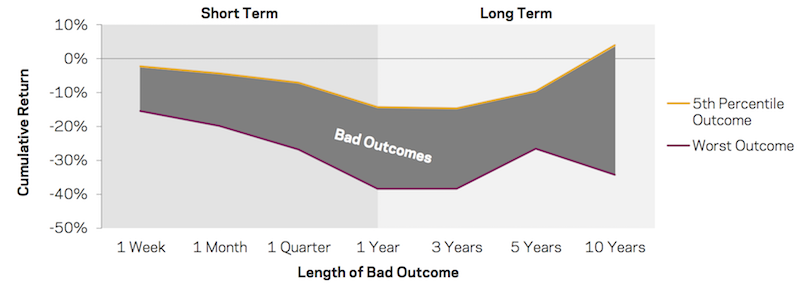

Calderini commenced his career at Deutsche Bank as Global Head of Emerging Markets. Calderini worked at Deutsche Bank from June 1997 to July 2010 where he held positions of increasing responsibility, most recently the Global Head of Equity Proprietary Trading. He joined GCM in August 2010 and became an Associated Person and Principal of GCM effective August 13, 2010. Calderini is also a member of the firm’s Executive, Investment, Risk and Compliance committees. Calderini is responsible for the management and oversight of the discretionary and systematic trading businesses at GCM, among other things. (“GCM”), an alternative investment firm with approximately $17 billion in AUM as of August 1, 2021. Calderini is the President and Chief Investment Officer of Graham Capital Management, L.P. He is also a former member of the New York City Bar Association’s Committee on Futures and Derivatives Regulation and its CPO/CTA subcommittee. JP is involved in community, civic and charitable activities that include membership in the Alternative Investment Management Association (AIMA) Commodity Futures Trading Commission (CFTC) working group, the Managed Funds Association CTA/CPO forum and the Connecticut Hedge Fund Association. With a team of over 100 lawyers, the practice is distinguished by the resources that it dedicates to representing quantitative fund managers, the high-profile nature of its engagements and the number of industry-leading managers that it represents. JP brings over 25 years of experience representing leading quantitative fund managers in a practice that, in multiple industry surveys, is consistently hailed as a leader. JP advises clients with respect to a broad variety of investing activity, including: In 2019 she has joined the board of the SBAI – the Standards Board of Alternative Investments. In addition, Leda has served as an advisor to the board of the pension fund of the CERN in Geneva and on the advisory board of the London School of Economics’ Systemic Risk Centre. She holds a PhD in Engineering from Imperial College London, where she worked as a lecturer and led research projects for over three years prior to joining J.P. Her past experience includes modelling of interest rate exotics, FX/interest rate hybrid instruments and equity derivatives. Morgan as a Quantitative Analyst in the derivatives research team. Prior to Cygnifi, Leda spent nearly seven years at J.P. At Cygnifi she was part of the management team and was head of its Valuation Service. Prior to BlueCrest Leda was part of Cygnifi Derivatives Services (a J.P. Systematica was formed in January 2015 as a spin-off of BlueCrest Capital, where Leda was President and Head of Systematic Trading for 14 years since 2001. Hence curious if there's some standard risk management bible for vol groups.Leda acts as CEO of Systematica Investments, an institutional hedge fund manager with approximately $13.2 billion in assets under management and offices in London, Geneva, New York, Singapore, Shanghai and Jersey.

Its fascinating to me because traditional risk measures don't work well, market exposure as described in marketing documents I've seen primarily talk about VaR at 95/99 but that is useless in sudden vol spikes like in Feb/Mar yet numerous short vol groups have weathered the storm (I'm at least certain those PMs still have jobs!). I meant groups for vol arb (essentially non market-making groups at prop shops and large platforms). though I believe that Artemis can also be short vol. Huge fan of Cole and Artemis btw (Taleb's a bit too incendiary.). However, like you say its hard to consistently make money like this and it has very low Sharpe (but probably much better risk profile).

Essentially looking for mispricings related to events. Essentially former flow traders at banks that moved over and wanted more PnL. The only successful long vol 'groups' were traders at prop shops / market-makers that were given a book. Though learning that they had a short vol operation makes me question how much that performance was due to vanilla market neutral equities book. Probably not quite on the level of PDT/DeShaw but very strong. they were always seen as quite innovative in the quant equity space and their returns were significantly superior to competitors. Still surprising Voloridge is in the options space! Though it does explain the outsized returns of las couple of years.


 0 kommentar(er)
0 kommentar(er)
